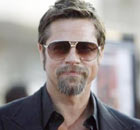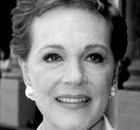-
-
MSNBC Marquee
Rihanna’s dad cut out of her life ‘over nothing’
Rihanna and her father both spoke to the press about their most recent estrangement.
Theater & Arts
Soldiers of truth
By Chen Weihua (China Daily)
Updated: 2009-11-24 11:00
 |
|
The 1980 file photo shows John Service with Lynne Joiner in China. |
China hands are in demand today in the United States, with relations between the two countries becoming entwined ever tighter.
That was not the case in the 1940s, when American diplomat John Service worked in China.
The expert on China, who supplied the US State Department with honest reports about the Communist Party of China (CPC) and its leaders, was singled out in 1950 by senator Joseph McCarthy as a Communist sympathizer. He was then fired by the State Department.
Service had met Mao Zedong, Zhou Enlai and Zhu De in Yan'an, Shaanxi province, which was the CPC base.
For years, Service fought to clear his name. A ruling by the US Supreme Court in 1957 ordered his reinstatement. But he was not truly resurrected until Richard Nixon announced in late 1971 that he would visit China soon. Service was invited to return to China before Nixon made his historic trip in February 1972.
Service suffered enormous hardships, both in his career and personal life. He died in Oakland, California, in 1999.
His ordeals and the politics of China and the United States over the past 60 years have been woven into a fascinating story by journalist Lynne Joiner in her latest book Honorable Survivor: Mao's China, McCarthy's America and the Persecution of John S. Service, published in October.
In an interview with China Daily, Joiner said that the US now needs Foreign Service officers with Service's truthful attributes on the ground in Afghanistan, Pakistan, Iraq and other hot spots. "If we don't remember this, we could repeat it," she says.
 |
|
The book cover of Lynne Joiner's latest book Honorable Survivor: Mao's China, McCarthy's America and the Persecution of John S. Service. |
"If Service's prescient predictions and keen observations and warnings had been heeded, perhaps we might have avoided a generation of animosity with the People's Republic of China, the conflicts in Korea and Vietnam," says Joiner, who first visited China as early as the 1970s. Lately, she has been busy promoting her new book across the United States.
Born into an American missionary family in Chengdu, Sichuan province in 1909, Service attended the Shanghai American School and later Oberlin College in Ohio before joining the Foreign Service. He spent much of his diplomatic life in China.
He was first assigned to work in the US consulate in Kunming, Yunnan province, then in the Shanghai consulate before going to the US Embassy in Chongqing during World War II.
After realizing there was another side of China, led by the Chinese Communists, Service urged the US government to send observers on a fact-finding mission to the guerrillas' base. Chiang Kai-shek, the leader of the Kuomintang (KMT) government, first refused to allow the Americans passage, but relented under pressure from former president Franklin D Roosevelt.
Service's reports to his boss and the State Department were critical of the KMT government. Words like "progressive" and "democratic" were used to describe the Communists.
Joiner says that despite Service's good relationship with the Communist leaders during his three months in Yan'an, he was not a Communist sympathizer.
"He just wanted to alert top US officials to the growing power of Mao's peasant revolution, which he predicted would change China and the world forever," she says.
After returning to Washington in 1945, Service was arrested and charged with passing classified documents from his time in China to the pro-Communist Amerasia magazine, which was then under investigation.
Many confidential documents were seized during an "illegal" raid of Amerasia's office in New York by government agents. That also made him among the earliest victims of McCarthyism in the early 1950s.
Joiner first heard of Service when she was a student at Cornell University. In 1976, she met Service and his wife, Caroline, at a conference on US-China relations at Stanford University. The couple told Joiner they enjoyed a documentary she had made about China. They soon developed a close friendship.
Joiner became determined to write about the legendary man after she was given access to his oral history at the University of California, Berkeley, where Service worked at the Center for Chinese Studies after completing his Master's degree in political science there.
But writing a book about that complex history turned out to be far more difficult than just reading the oral history. Joiner spent almost two decades researching various files to find out more about the complicated case. She worked hard to access some previously secret files, using her expertise as an investigative journalist.
"I had no idea that it would take this long," she says. "I spent five months in a windowless room at the FBI in Washington reading the heavily redacted files, and petitioned for a review of the files under the Freedom of Information Act," Joiner says.
She is extremely happy that her book has finally been published. "The timing is very good because this year is the 30th anniversary of diplomatic ties between the US and China. It's also the 100th anniversary of John Service's birth."
Chalmers Johnson, a prominent expert on Chinese politics and history, who taught and hired Service at Berkeley, praised the book as an insightful and deeply moving biography about how Service survived and was ultimately vindicated.
Joiner, who has visited and worked in China many times since the mid-1970s, described Service as a hero in a modern-day Greek tragedy. "He experienced many reversals of fortune in his odyssey, but steadfastly forged ahead in his efforts to restore his reputation. Every time the shadows of suspicion created new controversies, he calmly defended himself. As soon as he thought he'd gotten his career back on track, he was derailed by more intrigue going on behind the scenes," says Joiner.






